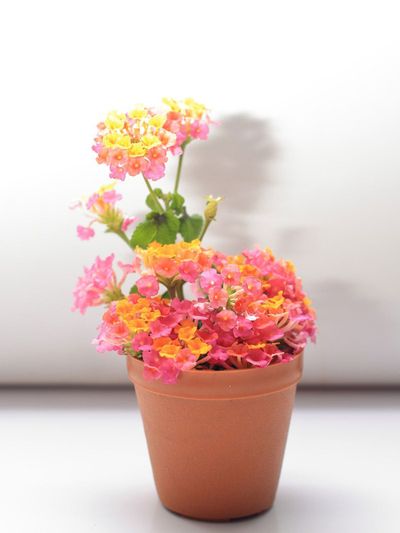Overwintering Lantana Plants
Lantana (Lantana camara) is native to Central and South America. However, it has naturalized in the southeast part of the country. Lantana grows to 6 feet (2 m.) tall and 8 feet (2.5 m.) wide, with dark green stems and leaves and the familiar clusters of flowers in shades of red, orange, yellow and pink. These blossoms cover the plant all summer long. When you worry about caring for lantana plants over winter, remember that lantana can grow outdoors all winter long in U.S. Department of Agriculture plant hardiness zones 9 or 10 and above without any special precautions. For these warmer zones, you do not have to concern yourself with lantana winter care. In colder zones, many gardeners prefer to grow lantana as an easy-grow annual blooming vigorously until the frost. It also self-seeds, and may appear the following spring without any action on your part. For those gardeners who live in areas that get frosts in the cooler months, winter care for lantanas is critical if you want to keep the plants alive. Lantanas need a frost free area to survive outdoors in winter.
Caring for Lantanas over Winter
Lantana overwintering is possible with potted plants. Lantana winter care for potted plants involves moving them inside before the first frost. Lantana plants should go dormant in autumn and stay that way through spring. The first step toward winter care for lantanas is to cut back on water (to about ½ inch (1.5 cm.) per week) and stop fertilizing the plants in late summer. Do this about six weeks before you expect the first frost of the year. Position the lantana containers indoors in an unheated room or garage. Place them near a window that gets diffuse light. Part of winter care for lantanas is to turn the pot every week or so to let every side of the plant have some sunlight. Once spring arrives and outdoor low temperatures do not dip below 55 degrees Fahrenheit (12 C.), place the potted lantana outside again. Adjust its position to gradually increase the amount of sunlight the plant gets. Once the plant is outside, water it normally again. It should resume growth as the weather gets warmer.
